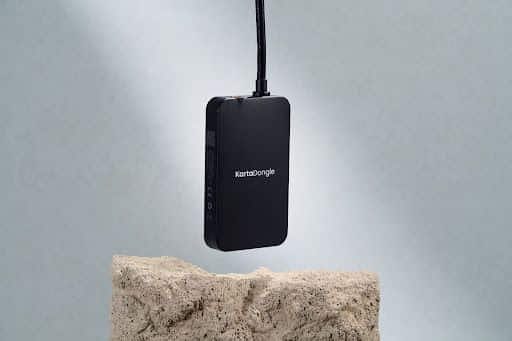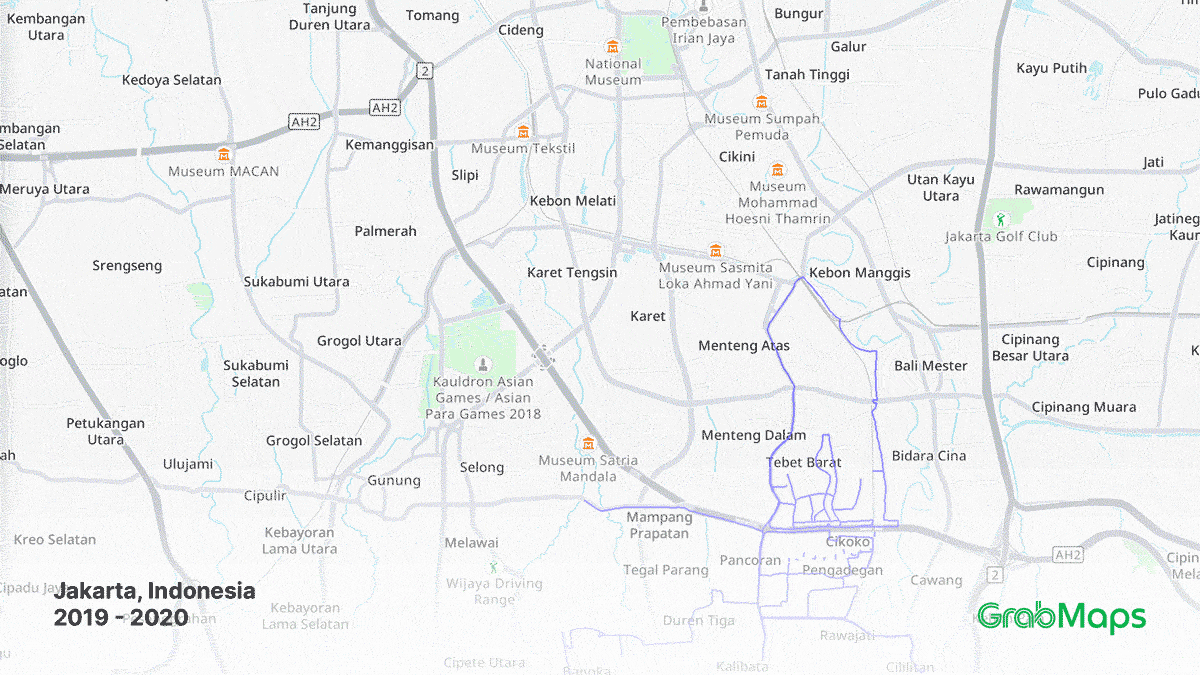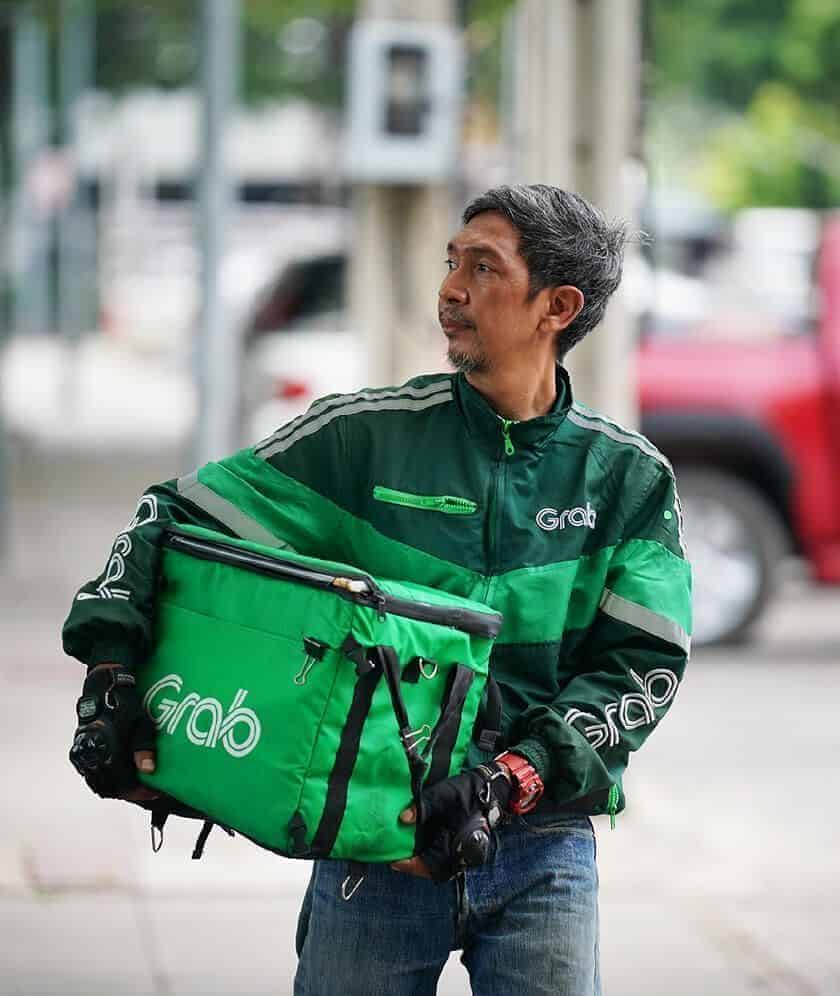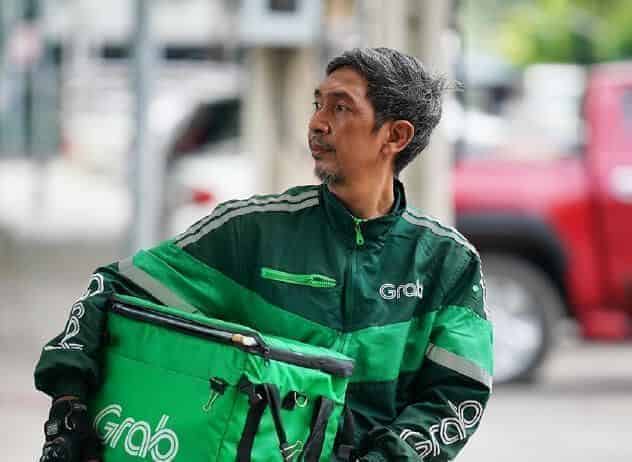An average GPS device offers a high degree of location accuracy, but it has its blind spots. In Southeast Asia’s densely populated cities, urban canyons can disrupt GPS signals and leave drivers struggling to navigate. Thick tree cover can also interfere with GPS, resulting in mapping issues like missing roads on standard maps of the region.
To fill the gaps in mapping data, Grab’s Internet-of-Things (IoT) team designed and launched the KartaDongle in 2022.

The smart device is connected to the vehicle and collects data using 4G, Bluetooth, and a GPS that is four times more accurate than a regular in-phone GPS.
The device also serves as a vehicle’s on-board diagnostics (OBD) equipment, tracking data like speed and wiper status.
Tracking a vehicle’s wiper status can give us an almost real-time view on where it’s starting to rain. Weather accuracy helps Grab better estimate and prepare for demand for mobility services. We found that this is especially helpful in countries where weather updates are slower and less accurate, because it gives us an additional layer of data to work with. The KartaDongle can improve weather accuracy from about 25 to 75 per cent.
With KartaDongle on board GrabRentals fleet—complemented by indoor Bluetooth beacons and crowdsourced information—Grab can gather localised, precise, and up-to-date data to improve GrabMaps. Better maps, in turn, enhance our drivers’ and customers’ experiences.

Reducing delays in pickups and drop-offs
Pickups and drop-offs are a particularly important factor.
We understand that when driver-partners can’t locate the right pickup points, users get frustrated. When pickup points have multiple entrances and exits—think condos, shopping centres, car parks—GrabMaps may not yet have updated information on all these points.
(Read more: Malls are a maze, so we started mapping indoors to help driver-partners find their way)
Mapping Meeting Points manually is time-consuming, but KartaDongle can automate the process. Our team has run promising experiments to partially automate the creation of digitised map information from high-quality KartaDongle data—leading to more complete maps in less time.
Making rides safer and more efficient
KartaDongle’s data contributions enhance the user experience during the ride itself as well. One application that we’re experimenting with, thanks to KartaDongle, is adding missing U-turn links in GrabMaps. When dual carriageways are modelled on the map, in-phone GPS data often lacks the accuracy to pinpoint areas where drivers can perform a U-turn. This results in longer trip distances that potentially translate to higher costs for passengers.
However, the KartaDongle has a higher level of positional accuracy than an in-phone GPS, and thus can better detect missing U-turn locations. Adding these missing links to GrabMaps will help driver-partners chart a more efficient route. This improved user experience also encompasses ride safety. The KartaDongle detects telematics safety data, such as collisions, hard braking, and speeding. By evaluating this data, Grab can help reduce unsafe driving habits, reduce the likelihood of incidents and create safer rides for both drivers and passengers.
At the same time, we ensure compliance with data privacy acts across the region. Data collected by the KartaDongle is anonymised and only used for its intended purposes.
Bringing the KartaDongle to Southeast Asia
We’ve since rolled out the KartaDongle to a selected set of driver-partners in Singapore, Indonesia and the Philippines.
In addition to improving GrabMaps’ overall accuracy, having the KartaDongle in rental fleets also enables us to gather location data to improve fleet management and the process of deploying vehicles. Finding more efficiency contributes to fleet cost savings and boosts the earnings of our driver-partners.
Looking beyond GrabRentals, we believe the regular GrabCars and GrabBikes experience can be enhanced by encouraging driver-partners to embed the KartaDongle in their vehicles.
3 Media Close,
Singapore 138498
Komsan Chiyadis
GrabFood delivery-partner, Thailand
COVID-19 has dealt an unprecedented blow to the tourism industry, affecting the livelihoods of millions of workers. One of them was Komsan, an assistant chef in a luxury hotel based in the Srinakarin area.
As the number of tourists at the hotel plunged, he decided to sign up as a GrabFood delivery-partner to earn an alternative income. Soon after, the hotel ceased operations.
Komsan has viewed this change through an optimistic lens, calling it the perfect opportunity for him to embark on a fresh journey after his previous job. Aside from GrabFood deliveries, he now also picks up GrabExpress jobs. It can get tiring, having to shuttle between different locations, but Komsan finds it exciting. And mostly, he’s glad to get his income back on track.

